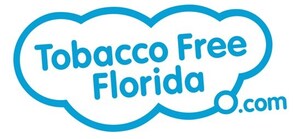Tobacco Free Florida Response To FDA Declaration Of Youth E-Cigarette Use Epidemic
Statement from the Bureau of Tobacco Free Florida
TALLAHASSEE, Fla., Sept. 12, 2018 /PRNewswire/ -- On September 12, 2018, Food and Drug Administration (FDA) Commissioner Scott Gottlieb, M.D., released a statement declaring youth electronic cigarette use an epidemic. The FDA also announced it issued more than 1,300 warning letters and fines to retailers, including requests to the top five e-cigarette manufacturers – JUUL, Vuse, MarkTen, blu and Logic – for thorough plans to address the widespread youth use of e-cigarettes within 60 days. The organization will also be investigating these brands' marketing and sales practices as they relate to this dramatic increase in youth e-cigarette use.
According to newly released 2018 Florida Youth Tobacco Survey (FYTS) data, e-cigarette use among Florida youth spiked dramatically in just one year:1
- The youth (11-17) rate of current e-cigarette use increased 60.2 percent – from 9.8 percent in 2017 to 15.7 percent in 2018.*
- More than one in three Florida high school students have tried e-cigarettes, and nearly one in four reported current use.
- Current use of e-cigarettes among Florida middle school students increased 44.4 percent, from 5.4 percent in 2017 to 7.8 percent in 2018.
The continued experimentation with these products among Florida youth is troubling. Many e-cigarettes contain nicotine, which is shown to disrupt the formation of brain circuits that control attention, learning, and susceptibility to addiction.2 Tobacco use and addiction most often begin during youth and young adulthood;3,4 in fact, nearly nine out of 10 conventional cigarette smokers start by age 18.5 Preventing nicotine addiction among young people is critical to ending tobacco use overall.6
In its statement, the FDA acknowledged that the biggest trend in youth e-cigarette use seems to be among cartridge-based e-cigarettes, like the JUUL. Tobacco Free Florida has previously identified this particular product as a threat to our youth and has taken steps to educate Floridians about this dangerous trend, including launching a digital marketing effort to parents and youth. Tobacco Free Florida also developed an educational blog post to provide Floridians with further information, which can be found at the following link: tobaccofreeflorida.com/JUUL.
The FDA is considering policy changes to help combat this issue, especially concerning flavored e-cigarettes. E-cigarettes are available in fruit and candy flavors, which are especially enticing to youth as they mask the harsh taste of nicotine, a toxic chemical.7 According to the 2016 Surgeon General's Report on e-cigarette use among youth and young adults, flavors were the leading reason for youth use of e-cigarettes.8
"Tobacco Free Florida supports the FDA's action to protect our youth against nicotine addiction," said Lacoadia Burkes, Interim Bureau Chief of Tobacco Free Florida. "We have also identified this troubling trend and will continue to take steps to educate the public and end youth use of nicotine. The FDA's ability to reduce availability online and at the point of sale is a particularly potent tool that would have great benefit."
In its statement, the FDA recognizes that e-cigarettes may pose health risks, including possibly releasing chemicals at higher levels than conventional cigarettes. It is important to note that e-cigarettes are not a smoking cessation method approved by the FDA. There are seven FDA-approved cessation aids and medications that are proven safe and effective when used as directed.9
Tobacco Free Florida offers free, proven-effective tools and services to help Florida residents quit tobacco use through its Quit Your Way program. For more information, visit tobaccofreeflorida.com/quityourway or call 1-877-U-CAN-NOW (1-877-822-6669).
About the Florida Department of Health
The department, nationally accredited by the Public Health Accreditation Board, works to protect, promote and improve the health of all people in Florida through integrated state, county and community efforts.
Follow us on Twitter at @HealthyFla and on Facebook. For more information about the Florida Department of Health please visit www.FloridaHealth.gov.
About Tobacco Free Florida
The department's Tobacco Free Florida campaign is a statewide cessation and prevention campaign funded by Florida's tobacco settlement fund. Since the program began in 2007, more than 188,000 Floridians have successfully quit using one of Tobacco Free Florida's free tools and services. There are now approximately 451,000 fewer adult smokers in Florida than there was 10 years ago, and the state has saved $17.7 billion in health care costs. To learn more about Tobacco Free Florida's Quit Your Way services, visit www.tobaccofreeflorida.com or follow the campaign on Facebook at www.facebook.com/TobaccoFreeFlorida or on Twitter at www.twitter.com/tobaccofreefla.
1 Florida Youth Tobacco Survey (FYTS), Florida Department of Health, Bureau of Epidemiology, 2018.
2 England, L. et al. Nicotine and the Developing Human: A Neglected Element of the E -cigarette Debate. Am J Prev Med. 2015 Mar 7.
3 U.S. Department of Health and Human Services. Preventing Tobacco Use Among Young People: A Report of the Surgeon General. Atlanta: U.S. Department of Health and Human Services, Centers for Disease Control and Prevention, Office on Smoking and Health, 1994 [accessed 2015 Oct 14].
4 U.S. Department of Health and Human Services. Preventing Tobacco Use Among Youth and Young Adults: A Report of the Surgeon General. Atlanta: U.S. Department of Health and Human Services, Centers for Disease Control and Prevention, National Center for Chronic Disease Prevention and Health Promotion, Office on Smoking and Health, 2012 [accessed 2015 Oct 14].
5 U.S. Department of Health and Human Services. Preventing Tobacco Use Among Youth and Young Adults: A Report of the Surgeon General. Atlanta: U.S. Department of Health and Human Services, Centers for Disease Control and Prevention, National Center for Chronic Disease Prevention and Health Promotion, Office on Smoking and Health, 2012 [accessed 2015 Oct 14].
6 U.S. Department of Health and Human Services. The Health Consequences of Smoking—50 Years of Progress: A Report of the Surgeon General. Atlanta: U.S. Department of Health and Human Services, Centers for Disease Control and Prevention, National Center for Chronic Disease Prevention and Health Promotion, Office on Smoking and Health, 2014
7 Kostygina, G, Glantz, S, & Ling, PM, "Tobacco industry use of flavours to recruit new users of little cigars and cigarillos," Tobacco Control 25(1):66-74, January 2016.
8U.S. Department of Health and Human Services. E-Cigarette Use Among Youth and Young Adults. A Report of the Surgeon General. Atlanta, GA: U.S. Department of Health and Human Services, Centers for Disease Control and Prevention, National Center for Chronic Disease Prevention and Health Promotion, Office on Smoking and Health, 2016.
9 "Five Keys for Quitting Smoking." Centers for Disease Control and Prevention. Centers for Disease Control and Prevention, n.d. Web.
SOURCE Tobacco Free Florida
Related Links
WANT YOUR COMPANY'S NEWS FEATURED ON PRNEWSWIRE.COM?
Newsrooms &
Influencers
Digital Media
Outlets
Journalists
Opted In




Share this article